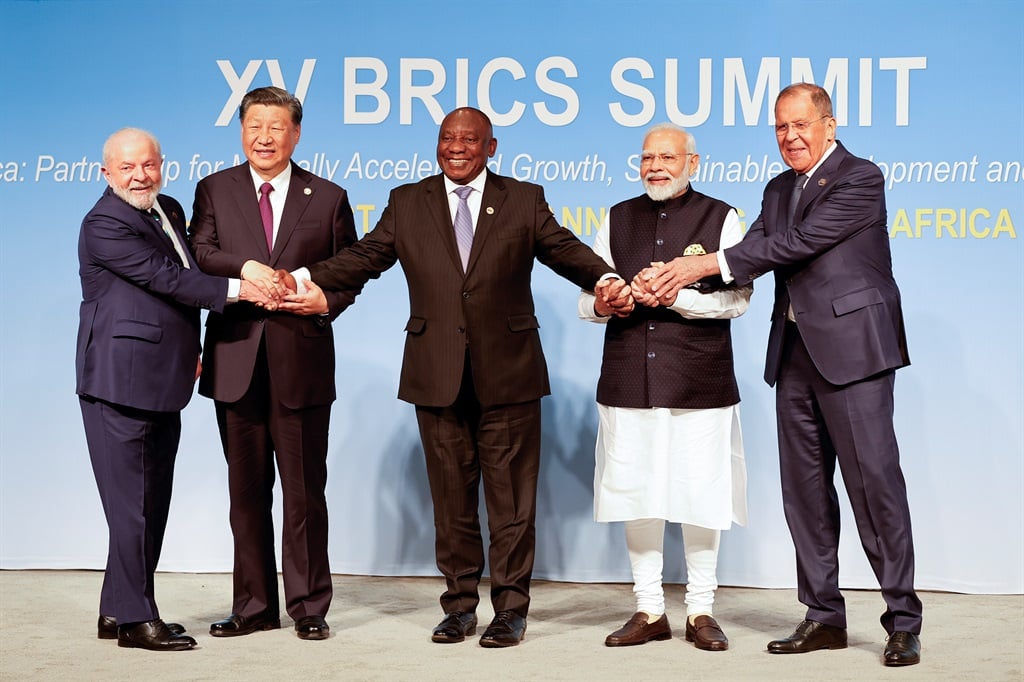
It had to take the rise of a new global power, outside of the traditional allies of the US, to create a centre of gravity for an alternative to emerge. China has indeed created that centre of gravity, writes Msingathi Sipuka.
Two weeks after the conclusion of the BRICS summit held in South Africa, analysis continues on the meaning of the moment for global governance.
Post-summit reflections, national and international, bring to the fore at least one of three or a combination of the following themes: the end of unipolarity, the decline of an empire or the fall of the US as a global hegemon. Regardless of which among these three themes one chooses, the role and place of the US and China in global affairs comes into the spotlight.
Certainly, the moment would, in all likelihood, not exist outside of the economic rise of China over the past 40 or so years. That singular development has literally catapulted the global discourse to the point we find ourselves today.
It had to take the rise of a new global power, outside of the traditional allies of the US, to create a centre of gravity for an alternative to emerge. China has indeed created that centre of gravity.
How can China displace the US?
As we try to find the meaning of the moment, Doshi, in his book the Long Game: China’s Grand Strategy to displace American order, presents us with a framework that can assist us in interpreting the BRICS outcomes and other associated global events.
The framework is premised on the idea that China's political elite are of the firm view that the current world order has run its course and the hegemon of the past century, the US, is no longer capable nor able to sustain the international system of governance it has built and shaped. This idea is based both on American weaknesses and the economic rise of China.
The overarching question is, short of war, how can China, as a rising power, displace a global hegemon, in this case the US? The answer to this question is at the centre of appreciating what is potentially at play.
Within this framework, the US has built its global hegemony based on three broad "forms of control" that are used to regulate the behaviour of other states: coercive capability (to force compliance), consensual inducements (to incentivise it), and legitimacy (to rightfully command it). To peacefully displace US hegemony, China would have to first weaken the US's ability to exercise any of these forms of control over it (China), secondly to secure its own position in its own region and lastly to turn towards global expansion.
READ | Ebrahim Harvey: BRICS - Why bigger may not be better
The expansion of Chinese capabilities for the two decades from 1978 to the end of the 1990s was, in effect, part of weakening the US's control over China.
Secondly, China's attempts at consolidating the Asia region, through, among others, the Belt and Road Initiative launched in 2013, was China's effort to fortify its position in the Asia region. Effectively, we are now in the third phase of the displacement process, that of global expansion. The global expansion will and is taking many forms.
The recent developments in the Middle East fit quite neatly into this analysis. The longstanding rivalry between Saudi Arabia and Iran (now both BRICS members) appears to be drawing to a close, with recent diplomatic developments prompted by China's proactive leadership in the Middle East. This is no small development in the region because the US has failed to constructively intervene in the tension between these two leading players in the Middle East.
Without a doubt, this positions China well and one is easily tempted to conclude that the entry of both Iran and Saudi Arabia into BRICS is directly linked to China's strengthened position in the Middle East through these recent developments. What is also important is that China's efforts are through mediation, which further bolsters its legitimacy in global politics as compared to the perceived trigger-happy approach of the US that leaves devastation behind its interventions.
US hegemony under threat, but not defeated
The inclusion of both Iran and Saudi Arabia into BRICS is a potentially significant move from two angles. The first is obviously the combined strength of the two countries in terms of oil exports and linked to the possibility that their combined strength can be used to shift the trading of oil away from the US dollar.
That would be a significant coup for the global forces working at blunting US global influence through the dominance of the dollar and furtherance of China's own global expansion drive.
READ | Adriaan Basson: Mr President, ask not what BRICS can do for you but what you can do for SA
The expansion of BRICS and the possibility of it playing a more influential role in global negotiations, through this analysis, is part of this third phase of global expansion China is currently undergoing.
If indeed China does successfully lead the charge of displacing US hegemony, what will replace it? Certainly, it will be an order configured largely around China's economic strength and its growing importance in global politics and governance.
However, what the international community seeks and what China promises is a system where the leading global player respects the rights of nations to self-determination in a world of common and shared interests. Where global governance and institutions tasked with overseeing international affairs are not subverted to serve the interests of the leading global player.
However, we must understand that we are in a long process of change that has been at play for at least 35 years. Yes, the winds of change are blowing harder than ever. US hegemony is under threat, but it is not defeated yet.
We also should not expect the US to roll over and die without a fight. In the context of Chinese global expansion, there will be various counter-offensives ranging from trade to currency wars and many new channels that will emerge. In the most immediate, we should expect a new US pivot to the Middle East to try and counter China's influence in the region.
Certainly, the decline of US hegemony creates conditions for an alternative framework of global governance and for developing nations around the world to break with US imperialism.
- Dr Msingathi Sipuka is Chief of Staff at the African Union Development Agency - Nepad (AUDA-NEPAD). He writes in his personal capacity. The article is developed out of a discussion paper presented at a meeting of the SACP Skenjana Roji District.
Disclaimer: News24 encourages freedom of speech and the expression of diverse views. The views of columnists published on News24 are therefore their own and do not necessarily represent the views of News24.




 Publications
Publications
 Partners
Partners























